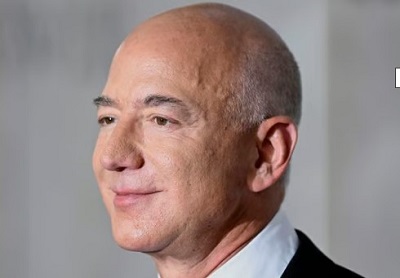“Presidential endorsements do nothing to tip the scales of an election,” Bezos, the billionaire Amazon founder, wrote. “No undecided voters in Pennsylvania are going to say, ‘I’m going with Newspaper A’s endorsement.’ None. What presidential endorsements actually do is create a perception of bias. A perception of non-independence. Ending them is a principled decision, and it’s the right one.”
The statement came hours after three members of the Post’s editorial board resigned over the decision not to endorse Vice President Kamala Harris and thousands of readers canceled their subscriptions to the newspaper. High-profile Post staffers have also publicly expressed their dismay over how the situation was handled and raised questions over the reason for the eleventh-hour decision.
Critics, including former Post executive editor Marty Baron, have called the decision “craven” and “cowardly” in a clear attempt to appease former President Donald Trump, should he recapture the White House in November. A person with knowledge of the matter told CNN that an endorsement of Harris had been drafted by the Post’s editorial board members before it was quashed by Bezos.
“I wish we had made the change earlier than we did, in a moment further from the election and the emotions around it,” Bezos acknowledged about the decision not to endorse. “That was inadequate planning, and not some intentional strategy.”
“I would also like to be clear that no quid pro quo of any kind is at work here. Neither campaign nor candidate was consulted or informed at any level or in any way about this decision. It was made entirely internally,” he wrote.
Bezos said he “sighed” when he found out about the meeting between Trump and Blue Origin chief executive Dave Limp, “because I knew it would provide ammunition to those who would like to frame this as anything other than a principled decision. But the fact is, I didn’t know about the meeting beforehand.”
He emphasized there was “no connection” between the meeting and the Post’s decision, calling speculation to the contrary “false.”
Bezos, however, acknowledged the “appearance of conflict,” noting that his work across Amazon and Blue Origin has been a “complexifier for the Post.” Despite this, he brushed aside the notion that his immense wealth could lead to political favors, instead calling his billions “a bulwark against intimidation” and underscoring his lack of interference in the Post’s affairs in the 11 years since he purchased the publication.
“While I do not and will not push my personal interest, I will also not allow this paper to stay on autopilot and fade into irrelevance — overtaken by unresearched podcasts and social media barbs — not without a fight. It’s too important,” he wrote. “The stakes are too high.”
But Bezos’s comments come after days of widespread backlash and turmoil inside of his newspaper, including public criticism from Watergate reporting legends Carl Bernstein and Bob Woodward, and an open statement signed by nearly two dozen Post columnists.
he did not want to remain silent about the threat Trump poses to the country.
“I cannot sit here any longer on the editorial board and write those editorials while we ourselves have given in to silence,” he said. “We face a terrible, terrible choice, I believe, a looming autocracy. I don’t want to be silent about it. I don’t want the Post to be silent about it, and the fact that we’re not going to endorse is a degree of silence I can’t stand.”
Baron, the Post’s former editor who led the paper to a Pulitzer for its coverage of the January 6 attack, also questioned that the decision to end presidential endorsements was a matter of principle.
“If their philosophy is readers can make up their own minds on the big issues that they face in this democracy, then don’t run any editorials,” Baron told CNN’s Michael Smerconish. “But the fact is they only decided not to run an editorial in this one instance 11 days before the election.”















Leave a Reply